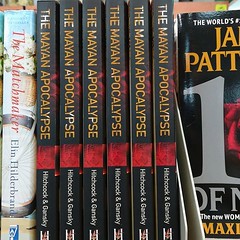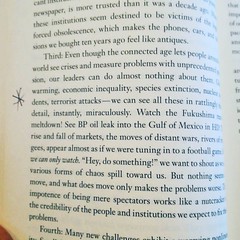
In 2017, “Hyper Brain, Hyper Body: The Trouble With High IQ” was written, referring to the study, “High intelligence: A risk factor for psychological and physiological overexcitabilities“.
Those titles lend themselves to disregarding people with high IQs. It’s an interesting paper nonetheless, but the conclusion seems to have been glossed over in the articles that covered it.
Conclusion:
Tsien (2016) defines intelligence as, “the ability to self-discover knowledge and patterns from a world full of uncertainties and infinite possibilities,” whose mission it is to “solve various problems in their natural and social environments in order to survive and thrive” (p. 2). The highly intelligent individual has a remarkable capacity for seeing and internalizing these vast uncertainties, possibilities, and problems. This gift can either be a catalyst for empowerment and self-actualization or it can be a predictor of dysregulation and debilitation as the present results suggest. If these individuals take in their world in such an overexcitable manner intellectually (hyper brain), then the potential exists for an intense level of physiological processing as well (hyper body).
The hyper brain/hyper body theory is new and as such a number of studies will need to be carried out to better understand its strengths and limitations. Understanding the relationship between high intelligence and illness could have a significant personal and societal impact. In this study, we have presented a plausible, highly testable, theoretical framework that hopes to serve as a springboard for future experimental designs across disciplines. We have provided evidence to demonstrate that those with high intelligence are at significantly greater risk for the examined psychological disorders and physiological diseases; however, more work needs to be done to demonstrate causation. With the recent advancement of the study of intelligence using neuroimaging techniques and full-scale attempts to map the genome combined with the newer research being conducted to better understand psychoneuroimmunological processes, it is possible that we will continue to see vital growth of our understanding in this understudied area. Intelligence research most often focuses on the flashes of lightning seen in this rare population, however in order to serve this group of individuals fully, we must not neglect to acknowledge the rumbles of thunder that follow in the wake of their brilliance.
“High intelligence: A risk factor for psychological and physiological overexcitabilities“, Intelligence, Volume 66, January–February 2018, Pages 8-23, Ruth I. Karpinski, Audrey M.Kinase Kolb, Nicole A.Tetreault, Thomas B. Borowski,
Now, here’s the rub. We’re talking about people with high IQs, which isn’t necessarily the best measure of intelligence in the first place.
…IQ tests are valid measures of the kind of intelligence necessary to do well in academic work. But if the purpose is to assess intelligence in a broader sense, the validity of IQ tests is questionable...
“Psychology: Themes and Variations“, 2021, Wayne Weiten
Let’s assume that the paper then deals with academic ability, even though IQ remains disputed as a measure of intelligence. Having taken tests, I’m somewhere between doornail and genius, just like many doornails and geniuses.
The real issue is that a society that is designed for average people only measures people based on that average and how far away they are from it – deviants. And they are comparing that deviancy from average intelligence and comparing it to a deviancy from ideal health based on statistical averages of people.
In essence, if you’re weird one way, you’re weird in another way. Surprised? Probably not.

More topically, in the context of the mental health aspects of the study:
There is no great genius without some touch of madness.
Aristotle.
Madness we call insanity and vice versa, and look how we continue to get ‘as mad as a Hatter’ so wrong.
The root issue here is the subjectivity of what we consider intelligence and what we consider sanity.
It is a little bit insane to try to find a correlation between the two moving targets.








